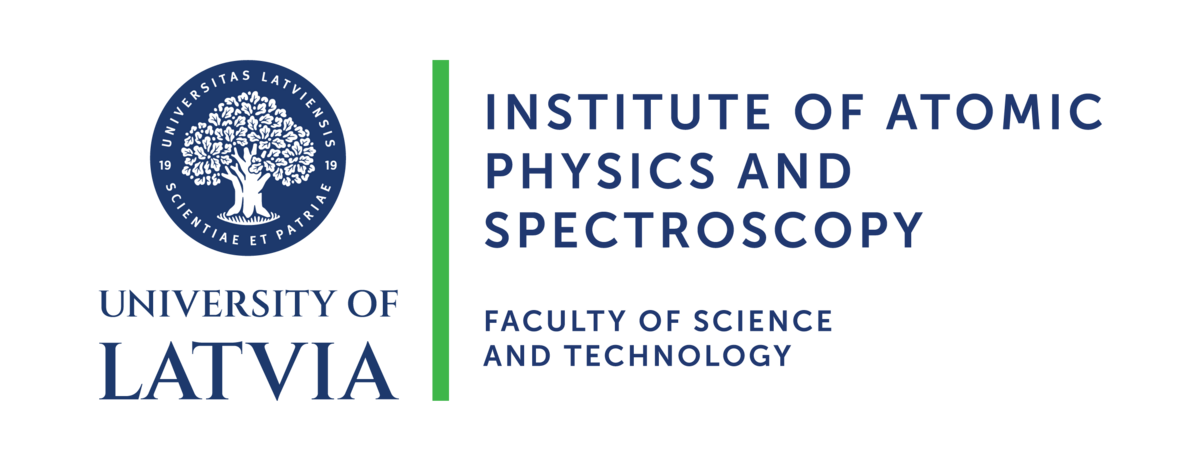
On 14 February 2025, as part of the 83rd International Scientific Conference of the University of Latvia, an on-line scientific workshop ‘Horizon Europe programme projects (MSCA-SE in IAPS)' was held by the Institute of Atomic Physics and Spectroscopy of the FST University of Latvia (IAPS FST UL), where the Horizon Europe Marie Skłodowska-Curie Actions – Staff Exchange projects were discussed. Currently, the Institute is implementing five such projects, four of which are coordinated by the University of Latvia, i.e. the Institute of Atomic Physics and Spectroscopy of the FST UL. The Workshop was moderated by the acting Director of the Institute of Atomic Physics and Spectroscopy of the FST UL) Inga Šīrante.
The workshop was opened by researchers from the SENS4CORN project ‘Novel optical nanocomposite sensors for analysis of micro and macro elements in corn plants’ (No. 101086364, coordinator: Dr. Roman Viter, Laboratory of Optical Biosensors and Functional Nanomaterials). The studies ‘Production of core-shell Metal Organic Frameworks (MOFs) Hybrids for Sensing Applications’ and ‘Hydrothermal synthesis and characterization of h-WO3 pure and doped with transition metal ions’ were presented by the Italian partner from CNR-STEMS, as well as by the Latvian performers: ‘Investigation of polymorphism in organic luminophores’ and ‘Photochemical sensor application of Salan-type ligands TFA salts for Cu²⁺ and Fe³⁺ detection in aqueous media’.
The presentations were continued with the MX-MAP project ‘Towards biomedical applications of MXenes using high-dimensional IMMUNE mapping’ (No. 101086184, coordinator: University of Padova, Italy; leader in Latvia: Dr. Maksym Pogorielov, Laboratory of Advanced Biomaterials and Biophysics). The Latvian partner presented a report ‘Biocompatibility of MXenes: influence of flake size and surface terminations’ and the German partner from Essen University Hospital: ‘Photothermal Targeted Ablation of Melanoma Using MXene-PDA-anti-CEACAM1 Complex’.
Foreign partners only presented the ESCULAPE project ‘Electrically Conducting Polymer 3D Scaffolds as a New Biomedical Strategy’ (No. 101131147, coordinator Dr. Viktoriia Korniienko, Laboratory of Advanced Biomaterials and Biophysics): ‘Harnessing Hybrid Nanoarchitectures for Next-Generation Photoelectrochemical Energy conversion’ from Adam Mickiewicz University in Poland and ‘Development of Ti₃C₂Tₓ MXene-Based Electrochemical Biosensor for Glucose Detection’ from NanoTechnas in Lithuania.
Further, Q-DYNAMO project on theoretical physics ‘Quantum Dynamic Control of Atoms, Molecules and Optical Processes’ (No. 101131418, coordinator: Dr. Teodora Velcheva Kirova, Laboratory of Theoretical Physics) was presented. The Latvian coordinator delivered a report ‘Quantum control via the Autler-Townes effect’ and the German partner: ‘Experiments with ultracold atoms and molecules in Ulm’ from the Ulm University.
The workshop was concluded with presentations by foreign partners on the ARGO project ‘Towards the development of a new antibacterial strategy in dentistry’ (No. 101086441, coordinator: Dr. Maksym Pogorielov, Laboratory of Advanced Biomaterials and Biophysics). The speech ‘Application of Silver Nanoparticles in Root Canal Treatment’ was presented by a partner from the Umeå Dentallaboratorium and ‘Silver Nanoparticles Antibiofilm Activity Against ESKAPE Bacteria’ by a partner from the Sumy State University.

 CONFERENCE
CONFERENCE